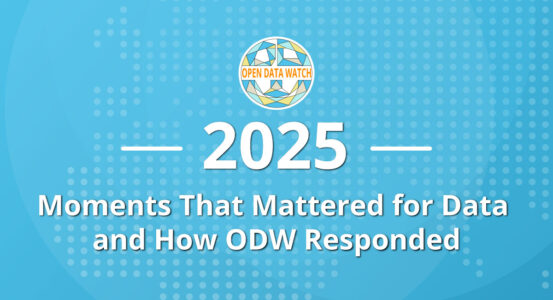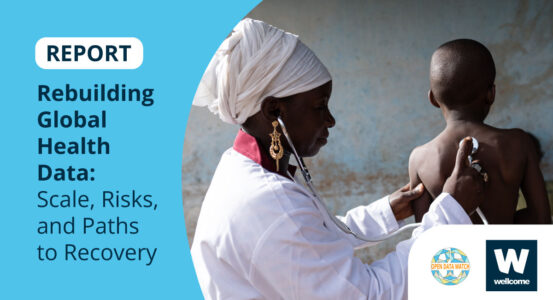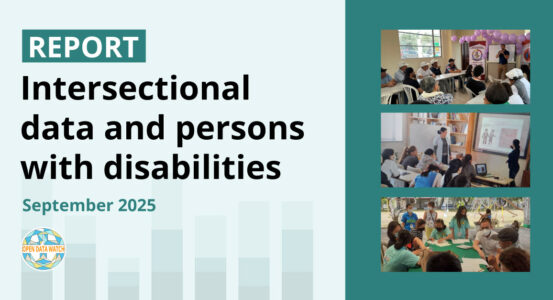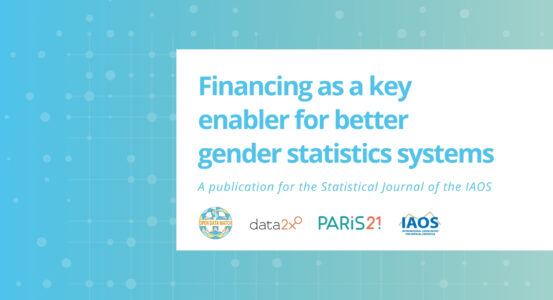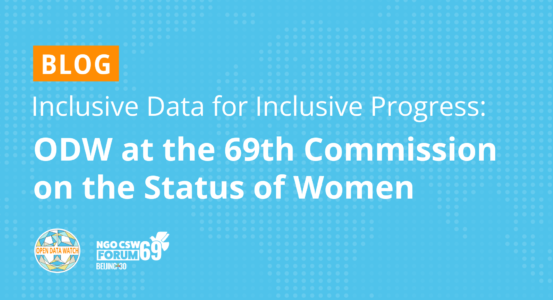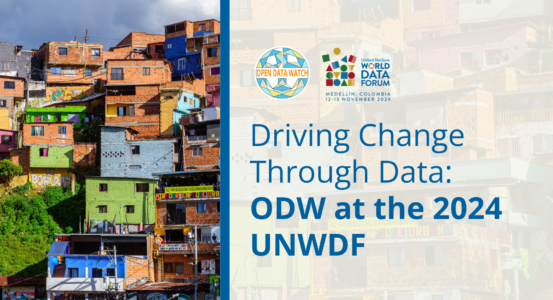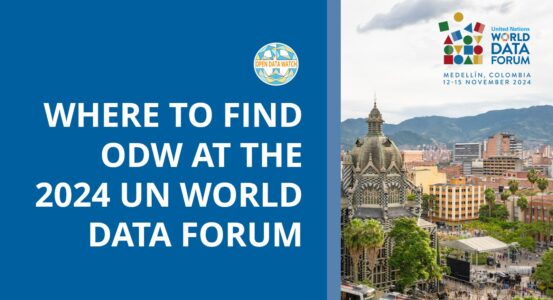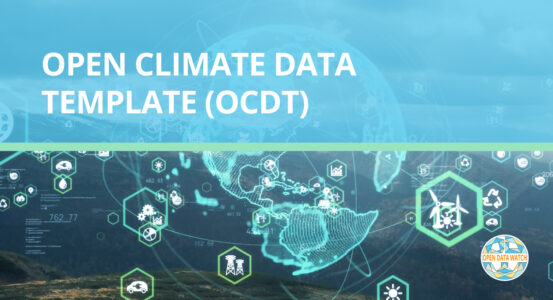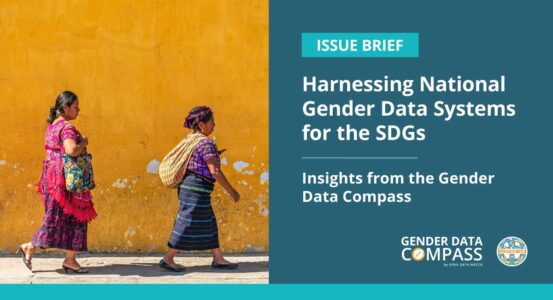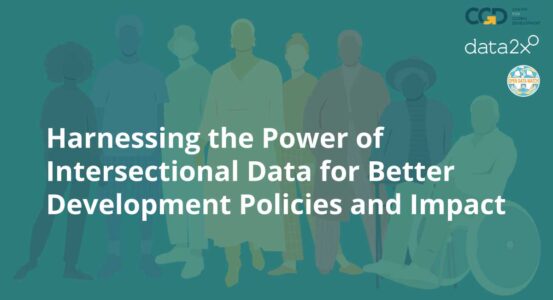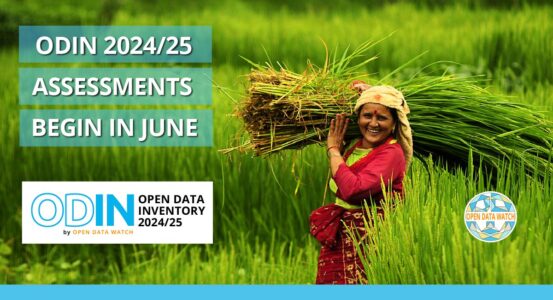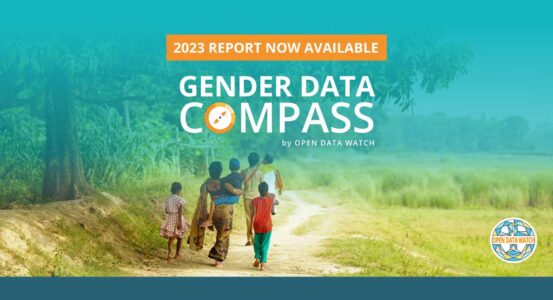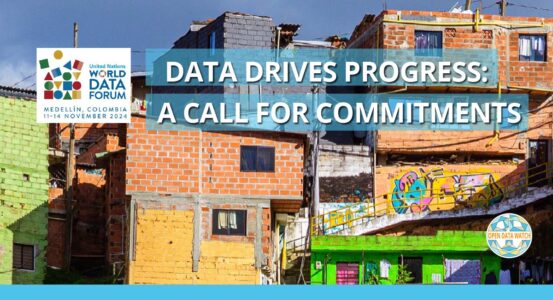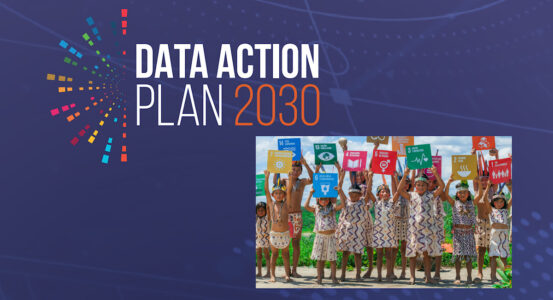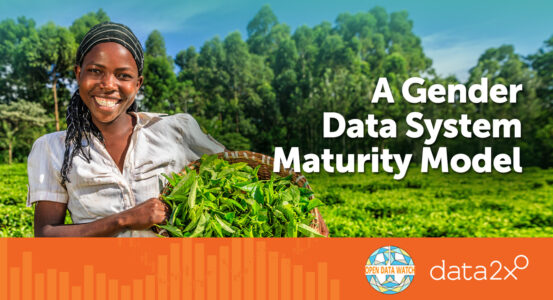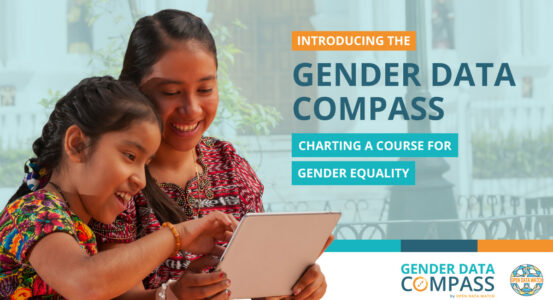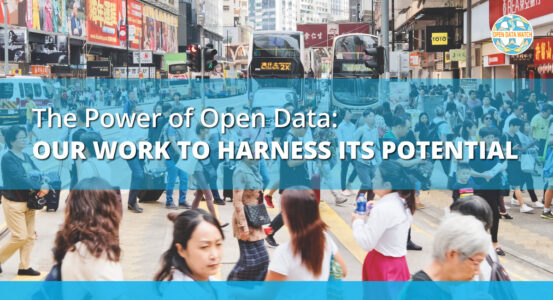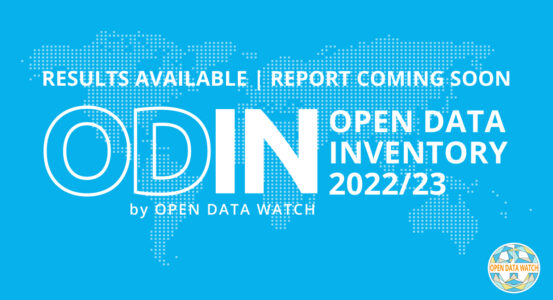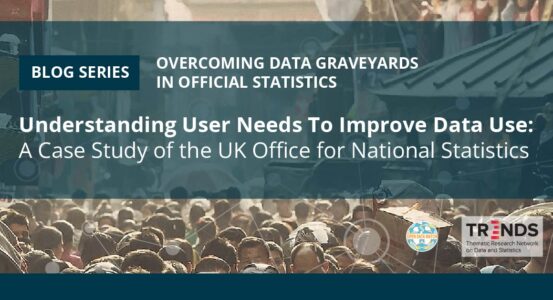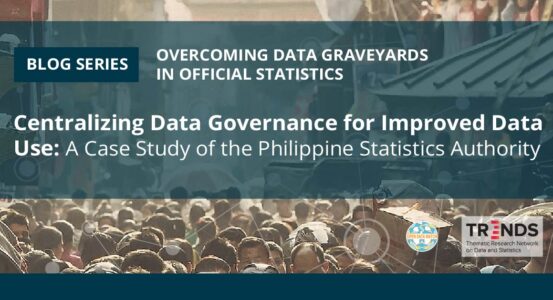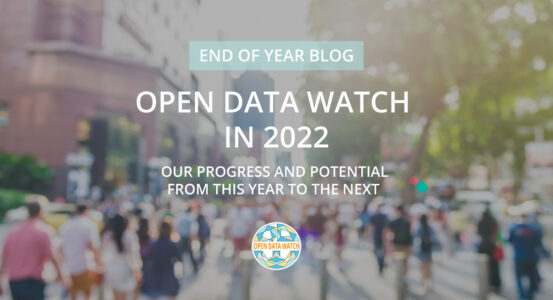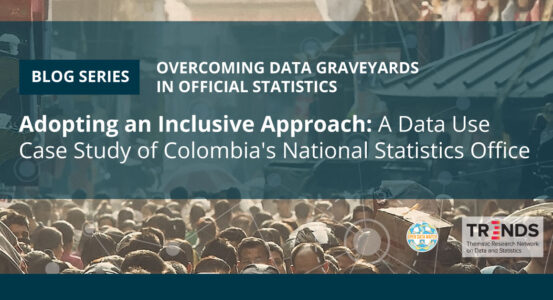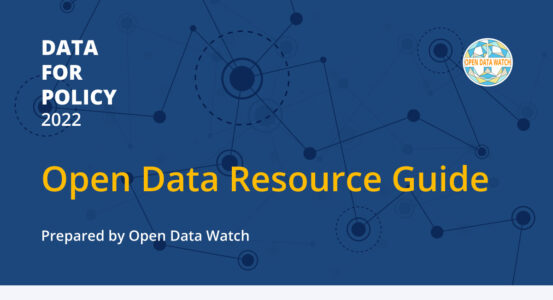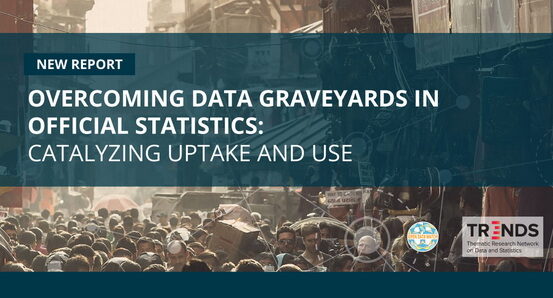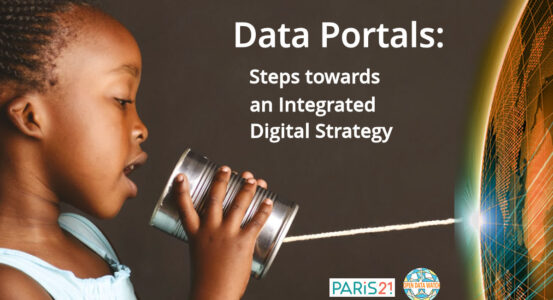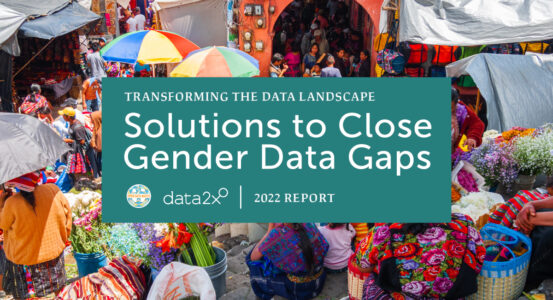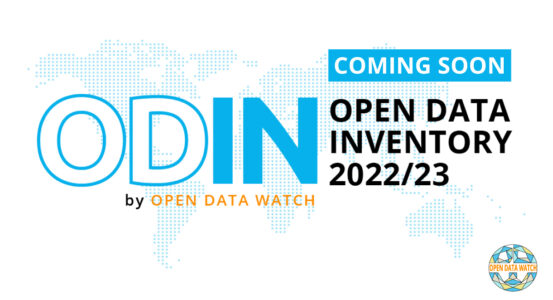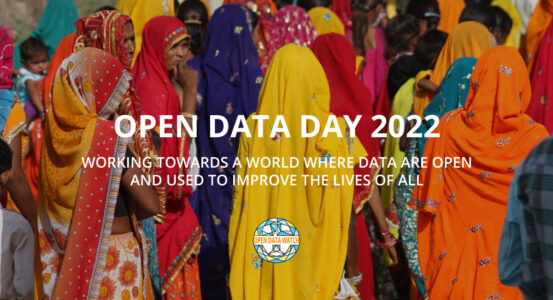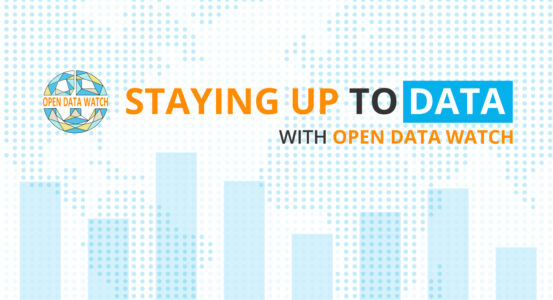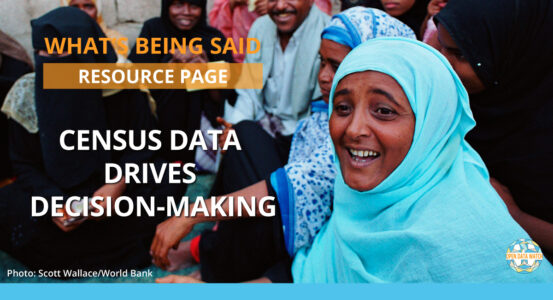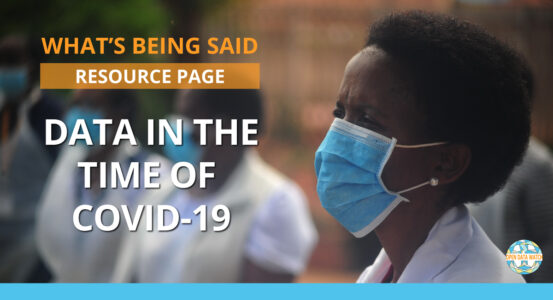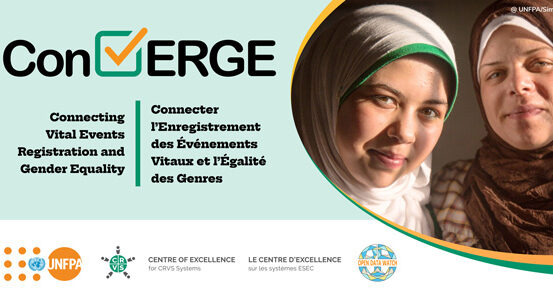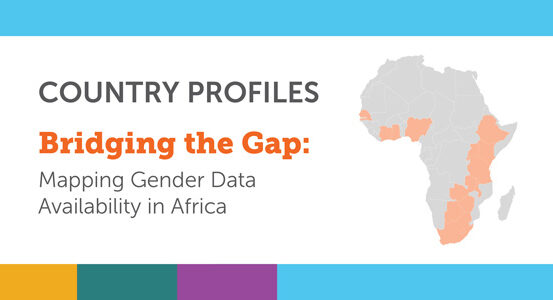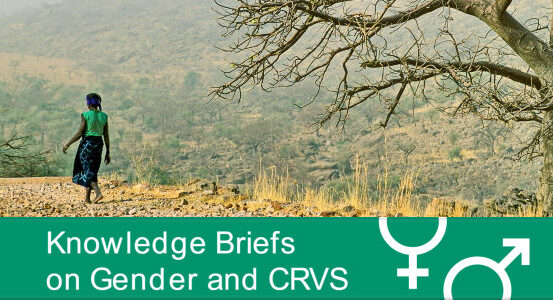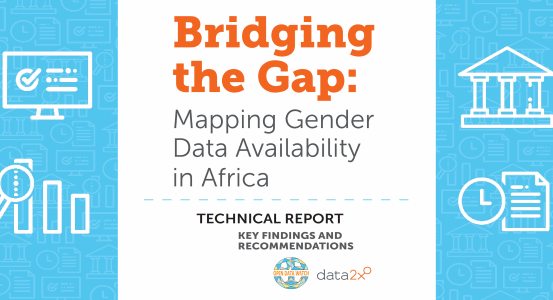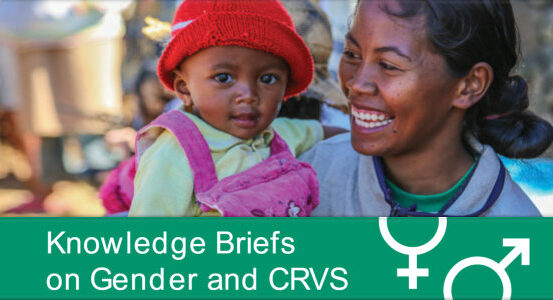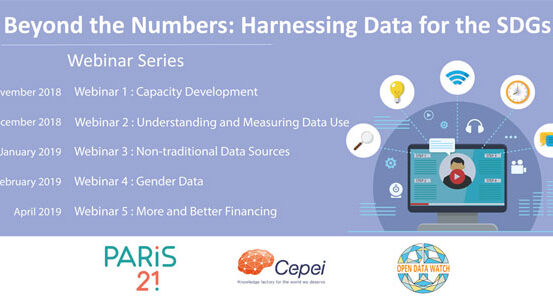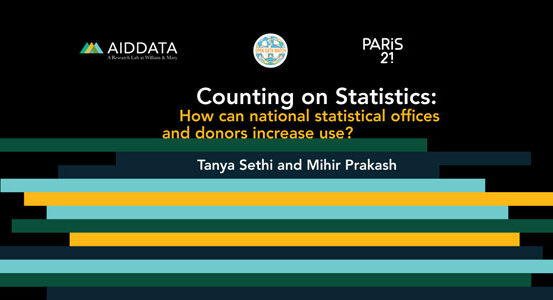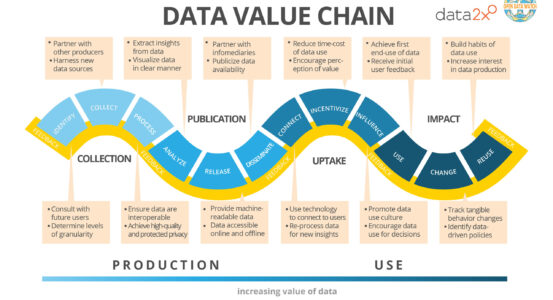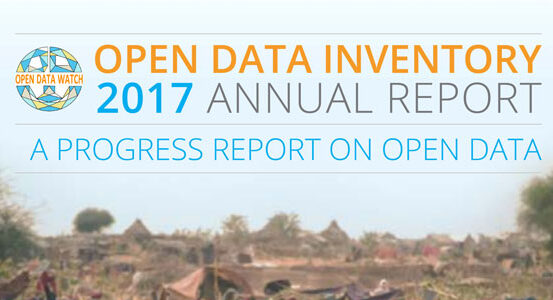For the development data community, 2025 was a defining year, marked by disruption and reinvention, major funding cuts, political shifts, and unprecedented strains on data systems just when demand for data reached all-time highs.
This major analytical report examines not only the diverse global impacts of the abrupt withdrawal of development assistance in early 2025, triggering a systemic shock to global health data systems, but also paths to recovery.
This report explores how intersectional data in the Data Value Chain can reflect the lived experiences of persons with disabilities and empower them to generate intersectional disability data to influence policies and programs.
Nearly half of gender-related SDG indicators are still missing, and chronic underfunding is a major reason why—this journal article lays out a clear path to unlock financing, bridge data gaps, and turn growing demand for gender data into real action.
Assessing 197 countries across 22 categories of official statistics, the 7th edition of the Open Data Inventory (ODIN) reveals that countries are making substantial progress in data openness and coverage, but that the changing data ecosystem faces risks without sustained commitment and investment. See the blog, Report, and full ODIN results.
While traditional data disaggregation — separating data by gender, age, or income — helps identify disparities, it often misses how multiple factors overlap. Intersectional data allows us to see the full picture.
The Commission on the Status of Women (CSW69) this year looked at how data can drive change for women and girls, emphasizing that comprehensive, accessible, and inclusive data are essential both to making and tracking progress.
Topics at this year’s United Nations Statistical Commission (UNSC) ranged from the new System of National Accounts (SNA), to the 2030 Population and Housing Census, the new framework for Citizen Data, SDG progress, time use surveys, data financing, and the impact of AI. Six key takeaways emerged.
This brief provides a practical guide for planning to build better data systems by integrating intersectionality at each stage of the data value chain, improving the quality and value of data, and creating meaningful impact.
As 2024 draws to a close, ODW looks backs on a decade of growth and learning — supporting countries to transform their data ecosystems, monitoring and promoting high-quality data and standards, providing research and data support to both countries and agencies, and leveraging combined substantive and networking resources to offer practical policy advice to improve data systems.
ODW had an active role at the recent UN World Data Forum where data experts, policymakers, civil society groups, and advocates focused on inclusive data, trust and ethics, effective partnerships, and maximizing the use and value of data in decision-making.
Ten years ago, Open Data Watch (ODW) started with a clear goal: that sustainable development can and must be empowered with quality operational data. It has been a journey defined by energizing partnerships, adding value, staying adaptable, and continually evolving.
Aiming to spark innovative ideas, collaboration, and partnerships for better sustainable development data, this year’s World Data Forum in Medellín, Colombia, will for the first time be running concurrently with a global “Commit to Data” campaign. ODW is active in both.
Open data about climate change and its impacts are vital to planning and implementing effective adaptation and mitigation strategies. The OCDT provides a way to find what datasets on climate change are available and how accessible they are.
The Sustainable Development Goal (SDG) agenda makes the ambitious promise to “leave no one behind.” This promise is impossible to keep without country-level gender data.
It is a pivotal moment in sustainable development to collect and analysze intersectional data in order to address the intersecting barriers that are currently hindering SDG progress.
The 7th round of the Open Data Inventory (ODIN) begins in June. As the world’s independent measure of the coverage and openness of official statistics, this year’s ODIN takes place against a backdrop of urgent need for evidence-based policies, citizen engagement, and ground rules for the AI revolution.
The new Gender Data Compass looks at national gender data systems and their enabling environment, covering 53 key gender indicators in over 180 countries.
In anticipation of this year’s UN World Data Forum, a challenge has gone out to all stakeholders to turn dialogue into transformative change by making concrete commitments to accelerate action and to assure the impact of data for improving lives.
Developed by a coalition of global, regional, and national partners, the Data Action Plan 2030 was presented to the SDG Summit as a way to leverage the data revolution over the next six years to achieve Sustainable Development Goals.
BRIDGE is a new data assessiment tool designed for NSOs and NSS partners to check the maturity of their gender data systems, set priorities for investments, and communicate those priorities to domestic and international sources of financing.
Through monitoring, research, and advocacy, the new Gender Data Compass offers practical, informed guidance for strengthening national gender data systems and gender equality policies. The Compass covers all 50 gender indicators of the Open Gender Data Index (OGDI).
Open Data Watch co-hosted or spoke at a number of sessions during the 2023 UN World Data Forum in Hangzhou, China. The events covered a broad range of topics — Data & Misinformation, Data in the Care Economy, Data Graveyards, Gender Data, and Data for the Public Good and Achieving SDGs.
In a time of multiple, intersecting global challenges, quality and timely data is more important than ever. The just-released ODIN 2022-23 Open Data Inventory Report provides a comprehensive analysis of the state of open data in 192 countries worldwide.
Open Data Days, happening 4-10 March 2023, celebrate how open data is used to benefit communities around the world. Join Open Data Watch in supporting these initiatives to harness the potential of open data in many practical ways.
The Open Data Inventory (ODIN) 2022/23 measures the coverage and openness of official statistical data in 192 countries. Latest data are now online at the ODIN website, accompanied by a summary of technical assistance and updated country profiles. See blog for overview. The full ODIN 2022/23 assessment report comes out in March.
This case study looks at how data use of official statistics in the U.K. is promoted through a steadfast commitment to meeting users’ needs based on analysis of data use demands, data literacy training, and engagment with dedicated user and expert groups.
Based on the latest research into best practices by SDSN TReNDS and Open Data Watch, this case study looks at how the Philippine Statistics Authority (PSA) successfully centralized the data governance of major national statistical agencies to ensure that datasets are better tuned to user needs and can be efficiently used for policy and planning purposes.
As 2022 comes to a close, Open Data Watch (ODW) reflects on what has been achieved and what is left to be done to support open data for development, better data governance, fewer data gaps, and more impactful data use to improve people’s lives.worldwide — all eight billion of them.
Based on the latest research into best practices by SDSN TReNDS and Open Data Watch, this case study looks at how Colombia’s National Statistics Office (DANE) captures several new data dimensions to improve the visibility of minority groups in national statistics through inclusive, disaggregated data.
Open data can be powerful for informing policies, increasing transparency and measuring progress. But making data open takes commitment, organization, and technical capacity. Ahead of the upcoming Data for Policy conference, Open Data Watch offers this guide to common questions, persistent challenges, and progress to-date,
Billions of gigabytes of data are produced daily, but valuable data often pass into “data graveyards” — lost when most needed for evidence-informed decisions on pandemics, climate change, and energy and food insecurity. This report finds best practices to improve data use and impact.
Data portals are a primary gateway for evidence-based decision-making, monitoring, fact checking, and reporting. But not all portals have the upstream data management needed to assure coverage, access and use.
This major report from Data2x and ODW on gender data gaps presents ways not only to identify gaps, but actually to start filling the gaps through ten specific steps using 142 innovative solutions across six development sectors.
The upcoming Open Data Inventory, ODIN 2022/23, will include new updates that expand its global coverage from 187 to 194 countries and reinforces the importance of gender data in countries’ statistical systems.
Without open data, informed decisions and accountability are not possible. When data are locked behind paywalls, innovation is stifled. But change is underway to improve access to data.
Open Data Watch launches the Annual Report of the 2020/21 Open Data Inventory (ODIN) that assesses the coverage and openness of official statistics in 187 countries. ODIN monitors the progress of open data that are relevant to economic, social, and environmental development. An Executive Summary is also available.
Our recently launched monthly newsletter highlights our latest projects, shares exciting events, and features new research and publications from the sustainable development data community.
The latest of three regional reports, this study assesses the availability and quality of 98 gender indicators from international and national data sources that impact the status and welfare of women and girls in Asia and the Pacific
Building on the Africa report, this new report examines 93 gender indicators in Latin America and the Caribbean. Looking at gender data availability and impact, the report provides data for policymakers on the status, welfare and opportunities for women and girls in the region.
Census data not only provide a count of people in a country, but also information on variables like gender, ethnicity, and income. To better understand the impact of census data on government revenue, political representation, and public programs such as response to the current pandemic, ODW has collected key articles and resources in this special edition.
The current COVID-19 pandemic raises important questions about opening, sharing and using data. Learn about available datasets, dashboards, visualizations, and relevant articles on how to understand and use data to fight the spread of COVID-19 via this special edition of What’s Being Said. It is updated regularly as new items become available.
With ODW and UNFPA, the Centre of Excellence for CRVS Systems at IDRC co-hosted ConVERGE: Connecting Vital Events Registration and Gender Equality – a two-day conference to inspire global commitment to integrating gender analysis to strengthen CRVS systems. Watch the proceedings. and read the conference Outcome Report.
This set of 15 country profiles is a resource for addressing gender data gaps in Africa. Presenting findings in connection with the Bridging the Gap report, the profiles provide country-specific information and highlight opportunities in each country to strengthen the availability and quality of data for 104 gender-relevant indicators.
The latest Knowledge Brief in this series looks at specific barriers, solutions and actions for strengthening civil registration and vital statistics. Published quarterly by The Centre of Excellence for CRVS Systems in partnership with ODW, the series offers in-depth case studies and unpacks structural, political and social factors impacting gender data gaps, social protection, legal frameworks, and rights protections for women and girls.
How to understand, identify, and respond to the challenge of producing policy-relevant data about the lives of women and girls? The data landscape has dramatically changed in the five years since the first Bridging the Gap report. To assess practical realities, this edition takes a deep dive into the details of data availability about women and girls in 15 countries in sub-Saharan Africa.
This series of knowledge briefs looks at gender bias and barriers in civil registration and vital statistics. Published quarterly in 2019 by The Centre of Excellence for CRVS Systems in partnership with ODW, 12 papers in the 3 briefs will offer in-depth case studies, findings, and recommendations on gender data gaps, social protection, legal frameworks, and rights protections for women and girls.
In partnership with Cepei and PARIS21, Open Data Watch offers this five-part webinar series to provide an opportunity for allow development, data and policy experts as well as practitioners to interact with practitioners concerning the latest advancements in development data.
A result of a joint project between AidData and Open Data Watch, the Counting on Statistics report examines how official statistics are being used from the perspective of 400 national statistical office officials and 650 government ministry officials in 140 low- and middle-income countries.
The data value chain describes the evolution of data from collection to publication to uptake and, finally, to the impact of data on decision making. While the data value chain was created for research documenting gender data impact stories, the framework can also be applied to all types of development data.
The Open Data Inventory (ODIN) measures the coverage and openness of official statistics published on national statistical office websites. This report shares the results of the 2017 round of assessments for 180 countries and helps identify gaps and opportunities for improvement.


